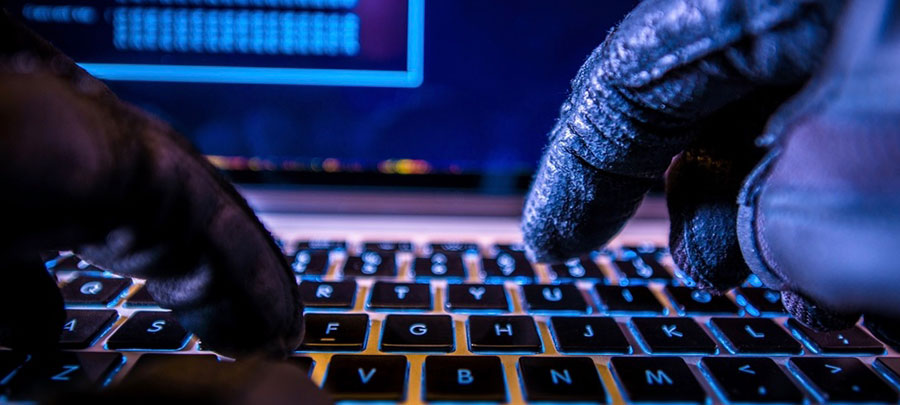



![]() Point(s) of Contact
Point(s) of Contact
Pamela Hamilton / FSO

843.327.3273
pamela@appliedsecurityknowledge.com
Richard Carmichael / ITPSO
678.221.7834
rcarmichael@laochservices.com

DoD Hotline
dodig.mil/hotline / 800.424.9098
SOURCE: Homeland Security Today – November 4, 2022

In FY21, résumé submission was the top MO, accounting for a third of overall reported attempts, more than doubling the next closest MO—exploitation of experts.
This report reflects foreign collection attempts to obtain unauthorized access to sensitive or classified information and technology resident in the U.S. cleared industrial base. In FY21, DCSA received nearly 24,000 reports of suspicious contacts from cleared facilities operating as part of the National Industrial Security Program (NISP). Of these, DCSA reviewed and identified thousands of incidents of counterintelligence concern that likely involved a foreign entity attempting to illicitly obtain classified information or technology resident in cleared industry, or an attempt to compromise a cleared employee.
The large scope and diversity of collection efforts targeting U.S. technologies meant that foreign entities simultaneously directed considerable efforts at many technologies using variations of methods and collectors. In FY21, electronics; software; and command, control, communications, and computers (C4) made up the top three targeted technologies. These three technologies accounted for 40 percent of all reporting for FY21. Aeronautic systems and armament and survivability finished out the top five targeted technologies. The remaining reported collection efforts targeted a variety of technologies covering the remaining 24 IBTL categories.
SOURCE: Dark Reading by Staff – October 25, 2022

A phishing email purportedly from LinkedIn with the subject line "We noticed some unusual activity" was discovered targeting users at a travel organization, in an attempt to pilfer their credentials on the social-media platform.
The phishing campaign slipped past Google's email security controls after cheating email authentication checks via SFP and DMARC, according to Armorblox, whose email security system at the victim organization found and stopped the attack pointed at some 500 user inboxes.
"The main call-to-action button (Secure my account) included within the email contains a bad URL and took victims to a fake landing page. This fake landing page ... mimicked a legitimate LinkedIn sign in page that included LinkedIn logos, language, and illustrations that mirrored true LinkedIn branding," Armorblox wrote in a post about the attack campaign.
SOURCE: InfoSecurity Magazine by Alessandro Mascellino – November 7, 2022

The Android banking Trojan Vultur has reached a total of more than 100,000 downloads on the Google Play Store, says a new advisory from cybersecurity experts at Cleafy.
The dropper hides behind a fake utility application. Because of its relatively limited permissions and small footprint, it appears as a legitimate app and can elude Google Play security measures.
"Although most of the banking trojans are distributed via *ishing campaigns, TAs [threat actors] also use official app stores to deliver their malware using dropper applications, namely an application designed to download malware into the target device," the Cleafy team explained.
SOURCE: The Register by Brandon Vigliarolo – October 19, 2022

It's just as you suspected: your Gen Z and millennial coworkers just aren't taking cybersecurity at work seriously enough.
Professional services firm EY made that determination after speaking to 1,000 US workers whose current job requires the use of a work-issued laptop/computer a majority of the time. While 83 percent of respondents said they understood their employer's security protocols, the data points to a disconnect between understanding and implementation.
According to EY's findings, 58 percent of Gen Z and 42 percent of millennial respondents said they disregard mandatory IT updates for as long as possible, something only 15 percent of boomers and 31 percent of Gen X admitted to.
SOURCE: Life is a Special Operation

Operations Security (OPSEC) is a five-step analytic process which identifies information, generally unclassified, which is critical to the success of a mission, assesses threats to that information, assesses vulnerabilities which would expose the information, analyzes associated risks, and develops appropriate countermeasures.
What is OPSEC? (7-minute video)
SOURCE: NextGov by Kirsten Errick – November 2, 2022

Federal Communication Commission Commissioner Brendan Carr testifies before the House Energy and Commerce Committee's Communications
and Technology Subcommittee in the Rayburn House Office Building on Capitol Hill December 05, 2019 in Washington, DC. (Photo by Chip Somodevilla/Getty Images)
Federal Communications Commissioner Brendan Carr called for the U.S. to entirely ban the social media app TikTok over concerns about how the app and its Beijing-based parent company, ByteDance, handle U.S. user data.
"I don't believe there is a path forward for anything other than a ban," Carr said in an interview with Axios.
Carr's remarks come as the Council on Foreign Investment in the U.S. is in the midst of negotiations with TikTok about whether it can continue to operate in the U.S. if ByteDance sells the app to an American company. While the FCC has no authority to directly regulate TikTok, Carr urged CFIUS to implement the ban.
SOURCE: FCW by Chris Teale – November 7, 2022

PONYWANG/GETTY IMAGES
Government employees were the target of almost half of all phishing attacks last year and are at risk of having their credentials stolen in those attacks, according to a recent report.
Researchers at cloud security company Lookout found that public-sector employees were the subject of 50% of all credential-stealing phishing attacks in 2021, up from 30% in 2020, as many agencies continued to embrace hybrid work in light of the COVID-19 pandemic.
At the same time, governments increased their reliance on unmanaged mobile devices at a rate of 55% from 2020 to 2021, a move that Lookout said showed agencies' willingness to support their hybrid and remote workforce by having employees bring their own devices. Those decisions increased mobile phishing, through the first half of 2022. Awareness of threats is key in this instance, according to Steve Banda, a senior manager for security solutions at Lookout.
SOURCE: NCMS

Over the past years, the regulation of cannabis has quickly evolved. Several states now allow the recreational use of cannabis products, while others allow it for medical purposes or not at all. In fact, recreational marijuana is legal in 19 states and medical marijuana is legal in 37 states and on a limited basis in 12 other states.
Unfortunately for cleared individuals, involvement with cannabis or even hemp products could put your clearance in jeopardy.